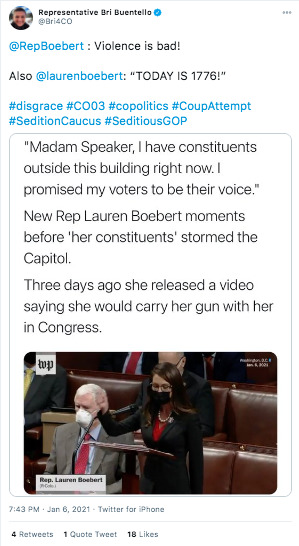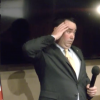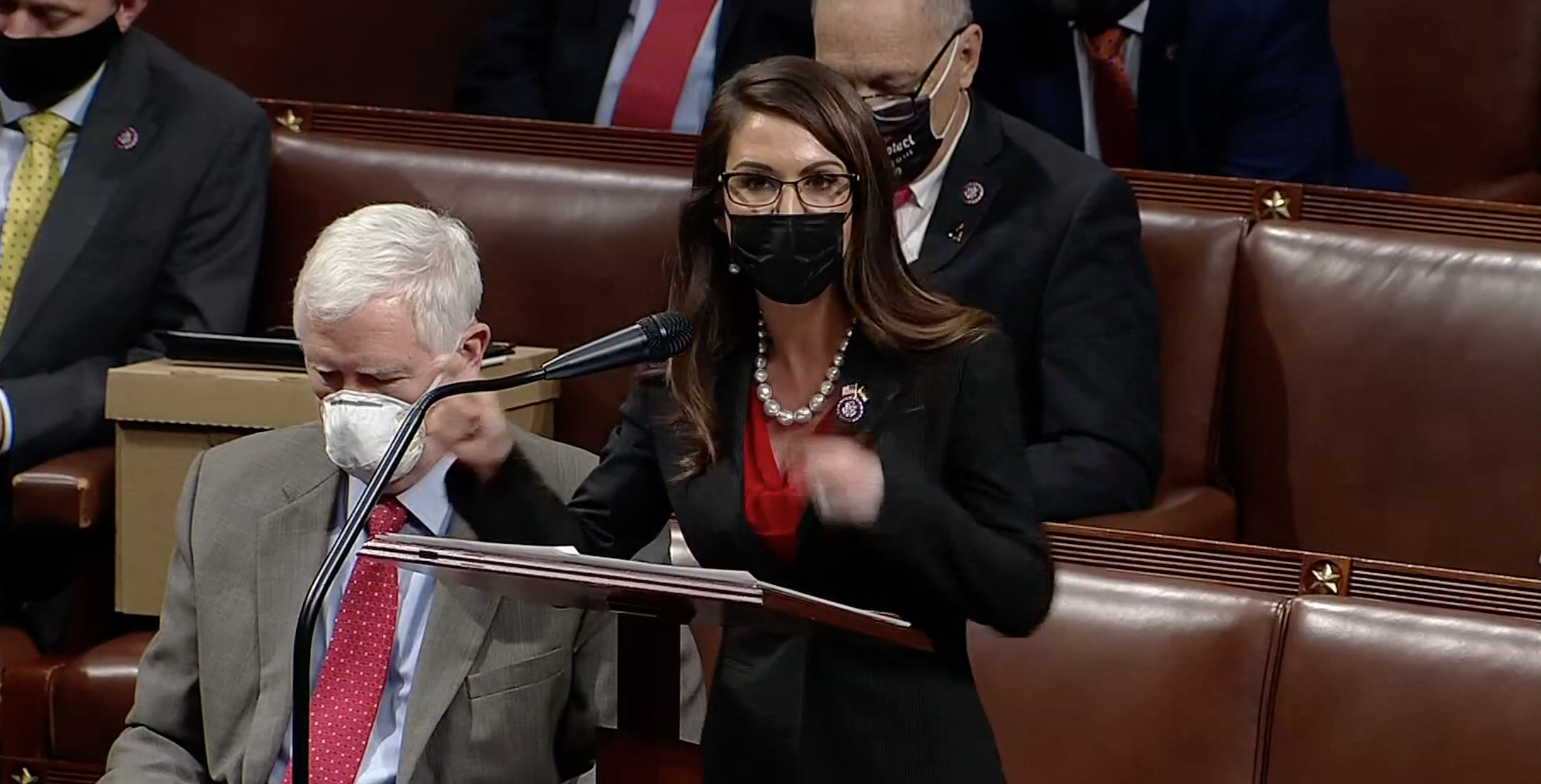On Wednesday, during the violent invasion of the U.S. Capitol by a mob of Trump supporters, newly-elected U.S. Rep. Lauren Boebert (R-CO) blocked one of her constituents, former state Rep. Bri Buentello (D-Pueblo) on Twitter.
Elected officials ranging from President Trump to a Colorado state senator have been successfully sued for blocking constituents on social media, which violates their First Amendment rights by severing their ability to participate in political discourse.
The tweet that got Buentello blocked pointed out Boebert’s hypocrisy in condemning the violence at the Capitol by listing quotes from Boebert, who recently joked that the Second Amendment was intended for “hunting tyrants,” encouraging the conspiracy theory that the 2020 election was rigged. During her first speech on the House floor Boebert also claimed the protestors outside the building as her own constituents.
Buentello believes Boebert’s decision to block her is more than an infringement of her First Amendment rights, but also as an indictment of Boebert’s ability to govern. Buentello explained that there is a difference between campaigning and governing.
“The bottom line is that Boebert works for her constituents,” Buentello said. “I should know as an elected state representative, and it’s not easy, but it is what I signed up for. And I darn sure didn’t block people or step on people’s First Amendment rights. People showed up at the town hall I held in Otero County, and they screamed and spit on me. This woman? This big wannabe cowgirl who carries a Glock on her hip? She can’t even handle Twitter.”
Elected officials blocking constituents on social media has become a contentious topic of debate in recent years, both because of the rise of social media use and because of Trump’s continued reliance on Twitter once he bacame President. General legal consensus and precedent is that social media pages run by the government or by a public official to conduct public business are protected as limited public forums by the First Amendment.
According to Mark Silverstein, Legal Director at the ACLU of Colorado, Buentello may have a meritorious lawsuit against Boebert.
“A federal district court held that President Trump violated the First Amendment when he responded to criticism by blocking particular constituents from Twitter, and the 2nd Circuit Court of appeals affirmed the ruling,” Silverstein said, “Similarly, ACLU of Colorado sued former state Senator Ray Scott for blocking constituents on Facebook. When a public official uses social media to allow exchanges of views with constituents, the First Amendment forbids blocking particular critics.”
The one argument that Boebert might fall back on is that she blocked Buentello from her personal account, not her official representative one. But since Boebert allows exchanges of views with constituents and publishes policy and ideological content on her personal account, which with nearly 400,000 followers is over ten times larger than her official one, it is considered similar to a town hall and therefore protected by the First Amendment.

“I think that it’s ironic that someone who screams into microphones for a living and cares about the Second Amendment so clearly does not understand the First, or is clearly contemptuous of the First Amendment,” Buentello said.
Buentello also pointed to Boebert’s pattern of disobeying the law. Boebert has a history of not showing up to court dates, of ignoring laws designed to protect juveniles, and of being arrested.
“Frankly, I think that she believes that she is above the law,” Buentello said. “We’ve seen this with her multiple arrests and her subpoena. I don’t know if she is in over her head and woefully unprepared for this job and the spotlight that it comes with. But the bottom line is that this is her job. Welcome to public office. Welcome to accountability.”
Boebert’s office did not return a phone call requesting a comment on her blocking Buentello.




